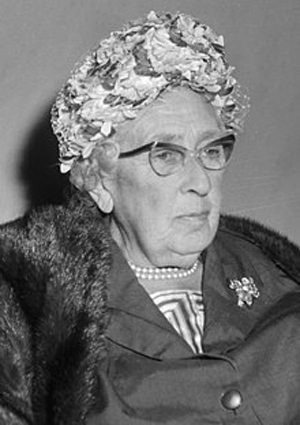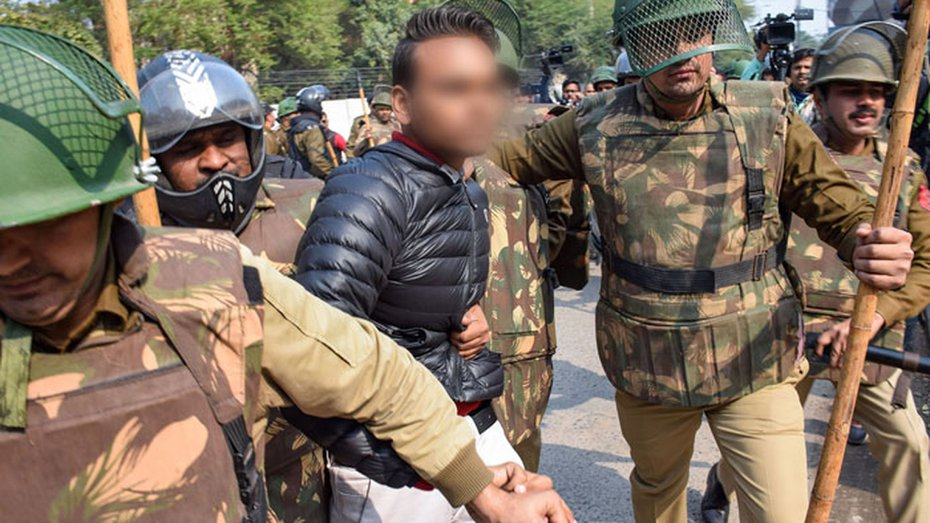Having grown up man and boy on The Daily Telegraph in London, I thought I knew my old paper well. But I must say I was taken aback to see an outsized photograph of Rambhakt Gopal brandishing a gun outside Jamia Millia Islamia in New Delhi, while the police looked on, relaxed, in the background. In London, he would have been tasered or shot.
The image, taken almost across the page, had a subliminal message: lawless India. This is not good for the Indian prime minister, Narendra Modi, who does enjoy a devoted following among the large Gujarati population in the United Kingdom but whose reputation is slowly being undermined in the British press which indirectly influences global coverage. The Sunday Times sent its chief foreign correspondent, Christina Lamb, for her full page India report, “Grans ‘ready to die’”, to stop Modi. “At a protest camp in a poor suburb of the capital, women are leading the campaign against citizenship laws which they say are a cover for Hindu nationalism.”
On its comment pages, Mukulika Banerjee, the director of the South Asia Centre at the London School of Economics, wrote: “Modi parades his hatred of Muslims — and makes a mockery of India’s [C]onstitution.”
Boris Johnson’s government remains resolutely pro-India for the time being, but the British at large will believe what they read in the papers.

Agatha Christie (Wikipedia)
Audible gasps
On a cold night last week, I took a bus across Westminster Bridge to County Hall to see a stage adaptation of Agatha Christie’s Witness for the Prosecution. The venue, on the South Bank of the Thames, used to be the headquarters of the Great London Council, but the old debating chamber now served perfectly as the ready-made courtroom, where Leonard Vole is tried for the murder of his benefactor, Emily French, a wealthy older woman who leaves him everything in her will. His vengeful wife, Romaine, testifies against her own husband but the defence gets hold of an incriminating letter she has been writing to her lover, which leads to Vole’s acquittal.
The audience, delighted that an innocent man escaped the gallows — the judge had been toying with a black cap — applauded loudly. Of course, there were those who were unaware of the last-minute twist to come. There were shocked gasps when Vole, aware he could not be tried twice for the same crime under the ‘double jeopardy’ rule, cheerfully announced he had killed French for her money. Romaine, his partner in crime, also admitted that the letters she had written were fake in order to discredit her earlier evidence as a witness for the prosecution.
Many in India will be familiar with Witness for the Prosecution — which has not lost its lure even after nearly a century — and Christie’s other great classics, such as The Murder of Roger Ackroyd and 4.50 from Paddington. In London, The Mousetrap, which premiered in 1952 and to which I have twice taken friends from India, is still playing at the West End after 67 years — a world record.
My programme brochure, which I will preserve, informed me that Christie wrote 66 crime novels, 150 short stories and 20 plays. Over two billion copies of her books in 100 languages have been sold. Incidentally, Christie was uneasy she had allowed Vole to get away with murder. I, too, had been shocked when I had first read Witness for the Prosecution as a young boy in India. She went back and rewrote the ending. In London last week, there were audible gasps from the audience for a second time.
Warm tribute
Nicholas Parsons, the BBC broadcasting legend who died on January 29 at the age of 96, presented Just a Minute for 52 years. He took his radio show — in which panellists are required to speak on a chosen topic “for 60 seconds without hesitation, deviation or repetition” — to Mumbai and Bangalore in 2012. The contestants on that occasion were Paul Merton and Marcus Brigstocke from Britain, while Anuvab Pal and Cyrus Broacha represented India.
On The World Tonight on BBC Radio 4, the presenter, Shaun Ley, paid a warm tribute to Parsons, suggesting that he was even more popular in India, where Just a Minute is known by his acronym, JAM. Speaking from Mumbai, Pal told him: “It was basically a way in which lots of Indians learnt how to speak English properly. It wasn’t till the Eighties I figured out it was a comedy programme.” Ley laughed: “You mean you thought it was an educational programme?”
Strong bond
There was a time before emails and mobile phones when Indians living in the UK received a telegram from India informing them, “Father (or mother) expired” — as I did. Now the first generation of Indian immigrants are themselves passing away. There was a poignant account by a journalist I know, Dipesh Gadher, whose father, Kanti, died recently while on holiday in Kenya. Dipesh flew from London to Nairobi to console his mother, who would have celebrated her 50th wedding anniversary next year. “Born in Kenya, Dad had moved to the UK in the mid-1960s to study in Cardiff,” explained Dipesh. The decision was taken not to repatriate his father’s body to the UK but bring back only his ashes: “We cremated Dad where he died, half a world away.”
I know especially of several women, with elderly parents in India, who are always catching flights back ‘home’. This deep bond between parents and children is, I suppose, part of being Indian.

Lisa Nandy (Wikipedia)
Footnote
The Labour Party’s Lisa Nandy, a serious contender for her party’s leadership, has made it clear that she is against knee-jerk tribal politics: “I’ve got people in my family who are Labour, Lib Dem, Conservative; my dad’s a Marxist.” That’s a reference to Dipak Nandy, 83, who helped draft the 1976 Race Relations Act. “My dad thinks I’m right wing,” jokes Lisa. Her father, who attended St Xavier’s College, Calcutta, is best described as an intellectual Bengali Marxist.










